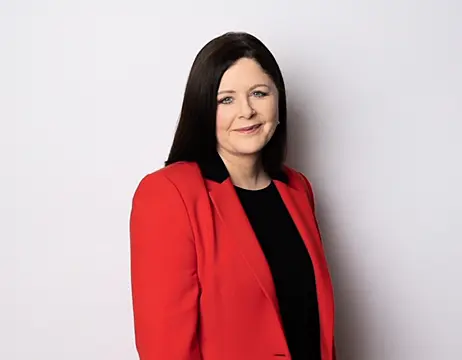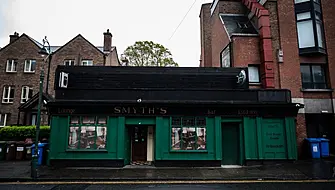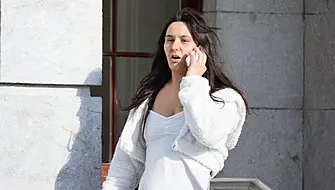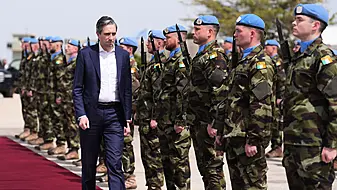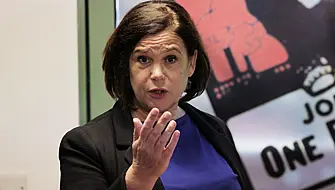The Labour Party will continue to survive after a “tumultuous” few years, one of its European election candidates has said.
Niamh Hourigan, a sociology professor from Limerick city who is running for election for the first time, said she joined the oldest party in Ireland because it holds key values for her on fairness in society.
Labour went into government with Fine Gael in the aftermath of Ireland’s financial crash, during which time the coalition implemented austerity policies that splintered the party and angered its voters.
The party went from its leader Eamon Gilmore having the highest approval rating in the country in 2010 to losing all three of its MEP seats in 2014 and 30 Dáil seats in 2016.
Of the 949 council seats filled in the 2019 local elections, Labour won 57, or around 6 per cent.
In national polls, the party is at around 4 per cent.
Ms Hourigan, who has been a high-profile political commentator, is one of Labour’s three candidates for the 14 seats in the European elections.
She said she decided to become a politician because as Irish politics becomes more polarised, “the centre left is in danger of eroding” and so it was “time to come off the sidelines”.
The candidate said a Labour-Social Democrats merger would be “problematic” because she believes left-wing parties should be growing amid cost-of-living and housing crises.
“In many ways, the situation will never be more fertile for growing the left,” she told PA.
The academic, who had Michael D Higgins as a political sociology lecturer while at university in Galway, said she chose the Labour party because of its left-wing policies and inequality in society.
She admitted the party has had a “tumultuous history in the last 15 years”, but added she found claims that voters feel betrayed by Labour “ironic” when Fianna Fáil leader Micheal Martin currently has the highest approval rating of any political leader and was in government during the Irish banking crisis.
Asked why she did not join another left-wing party, such as the Social Democrats, she told PA: “It is the oldest political party in the state, that’s something that speaks to me. The Labour Party is a survivor as Irish political parties go and I think it will continue to survive.”
Her father Michael Hourigan was a Fine Gael councillor in Limerick city for 20 years, and her sister Neasa is a Green Party TD.
She said when she joined the party in 2020, he asked her: “Why are you joining the Labour Party?”
“When I told him I was running, he said: ‘I always knew you were going to run!’ So he’s very excited.
“He’s been very supportive for me on this campaign as he has been of my sister. I’m very proud of my dad and the contribution he made to the city.”
Asked about whether politics is banned from discussion at family gatherings, she said: “Everyone says that Christmas dinner in our house must be really entertaining – it is.
“We talk about politics pretty much non-stop, I think a lot of Irish families are like that, they talk about politics over Sunday lunch, but it’s also in some ways almost like a family business.
“It’s a rainbow, but why are there so many songs about rainbows? It’s because rainbows are great. So we manage to navigate our differences and we’re still very close.
“I think it’s a sign of the health of not only a family, but more broadly when people in families feel that they can have political differences and different viewpoints, but still maintain their family relationships.
“I think it’s one of the tragedies that we’ve seen internationally, with both Brexit and with US politics, particularly during that Clinton-Trump campaign in 2016, where you did see family members at each other’s throats over political differences.”
Ms Hourigan joined the Labour Party in 2020 and said Ivana Bacik’s rise to the leadership, taking over from Alan Kelly, had no bearings on her decision to run as a candidate.
She said that canvassing was going well, but that the Ireland South constituency – which stretches from The Burren in Co Clare, down to Killarney in Co Kerry and up to Bray in Co Wicklow – is “enormously challenging”.
“I do think there’s an issue around the European elections themselves in the sense that a lot of people when you go out don’t understand or don’t realise what constituency they’re in, who currently represents them or who currently is applying to be an MEP.
“European campaigns are quite challenging in terms of Irish political culture, because we have that intimacy.”
She said that immigration was being raised, but “in both ways”, with people raising both concerns about the number of migrants coming in and concerns about the rise in racism and social cohesion.
On the EU Pact on Migration and Asylum, she said that if the seven pieces of the EU legislation are presented in the Dail as one vote, her understanding is that the Labour party will vote against it.
She said that given the complexity of the overhaul of the EU’s migration system, it should be presented to the Dail as seven separate votes: “This all or nothing approach, I don’t think it’s helpful.”
